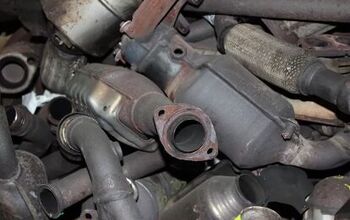Gilbert Calls Out Dealers In Wake Of Reinforced Michigan Direct Sales Ban
Tuesday, Michigan governor Rick Snyder signed into law a bill that included language reinforcing a direct sales ban established over 30 years ago.
Wednesday? Detroit billionaire Dan Gilbert — best known as the majority owner of the Cleveland Cavaliers who penned a letter in Comic Sans typeface in response to LeBron James making the decision to play for the Miami Heat — had a few words to say about this decision.
According to Detroit Free Press, Gilbert was interviewing fellow NBA team owner Mark Cuban while guest-hosting an episode of CNBC’s “Squawk Box” when he brought up the signing of HB 5606, now known as Michigan Public Act 354 of 2014, proclaiming the move “sends a bad message” as far as how much influence lobbyists — especially the auto dealer lobby — have over legislators. He added that Michigan dealers should “man up” and compete with Tesla instead of forcing the EV automaker to sell through a franchise network.
Morgan Stanley automotive analyst Adam Jonas agreed with Gilbert in a note to the financial giant’s clients, stating it was only “a matter of time” that the issue of direct sales — and Tesla’s link to them — would “likely mushroom into a national issue.” He also said legislation protecting the status quo “exist to support the weakest link in the network.”
On the other side, Detroit Regional Chamber of Commerce president Sandy Baruah believes Detroit “should have a business environment where all participants play by a common set of rules.” The chamber also supported the signing, and says it looks forward to the further examination Snyder called for in light of the reinforcement.
Seattle-based writer, blogger, and photographer for many a publication. Born in Louisville. Raised in Kansas. Where I lay my head is home.
More by Cameron Aubernon


































Comments
Join the conversation
Let Tesla have this and the major manufacturers might follow. This is why the dealers will fight to the death; that is what they face.
I fully support Gilbert on this. I seem globally and not only in the US to many industries create a little world in which they influence to maintain an unfair advantage. It's about time our elected officials start to represent the people and not the unions, industry or any other lobby group. Regulations must be made in favour of the consumer. When this isn't done then the consumer ultimately losses out and an uncompetitive environment exists. I say to the US car industry and unions grow some balls and take on some challenges. Advance. Like I stated those who refuse to start adopting this new technology to it's fullest will be left behind. The Luddites seem to have the lobby power at the moment. But, as always in life the squeaky wheel gets the grease.
The strange thing about this thread is that people are vigorously arguing about whether direct sales would save money, and even more vigorously arguing about whether the manufacturer-dealer system somehow represents a "monopoly". But no one seems to be discussing what seems to me to be the real point. The real point is not whether dealers add value to the process or not. The real point is that a manufacturer has been FORBIDDEN by law from selling their products directly to the public. How on earth can the legislators who proposed this bill and the governor who signed it justify this? "We believe that option A, the current one, is better than option B; therefore we are going to forbid option B". EVERYTHING NOT FORBIDDEN IS COMPULSORY.
I think most of these comments are completely missing the point. What we have is an American company being shut out of doing business in entire states...becuase someone doesn't like the way it sells cars. Now, if the method was somehow objectionable, or fraudulent, maybe they'd have a point. But all this method boils down to is a company manufacturing its own product and selling it through its own distribution network. How is this somehow a bad thing? Have these people never been to a shopping mall? They're chock full of company owned stores that sell products that a company designs and manufactures itself, and sells directly to its customers...just like Tesla does. Is this somehow a new phenomenon? No. Sears and JC Penney have been selling their own brands through their own stores for a century. If Snyder and these fool legislators want to look natty in Brooks Brothers suits, they have to buy it from company-owned stores. And do I really have to mention Apple? These companies are able to do this because they were under the impression that in the United States of America, you could do that. How much wealth and employment has been created by this model? It's incalculable. But not in Michigan, apparently. This is WRONG...and Snyder and every legislator who voted for this should be ashamed for being clearly, obviously bought and sold.